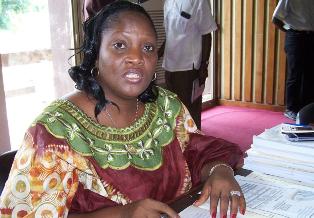Appreciating Ongoing Legislative Oil Sector Consultations
Consultations on the New Petroleum Law of Liberia, as well as the Act of the National Oil Company of Liberia or NOCAL are continuing across the country under the auspices of the Liberian Legislature. The Legislative consultations have already been held with Liberians in Nimba, Bong, Lofa, Bomi, Gbarpolu, Grand Cape, as well as Margibi, Rivercess, Grand Bassa and Grand Gedeh Counties, and are still continuing in River Gee and other south-eastern counties of Liberia at the moment. The political exercise is intended to solicit the inputs of citizens in the final legislation of the two documents.
Among comments/views being propounded at these citizens’ meetings is the issue of the dual role played by the oil sector in the development or destruction of any nation, including Liberia- an issue that requires sober national reflection. In one of the voluminous comments, especially during recent Buchanan consultations, a Grand Bassa County Representative underscored that the oil sector serves as an instrument for the development of a nation when it is managed properly for the benefit of the entire citizenry, while on the other hand, its availability also serves as an instrument for chaos and crisis, if it is mismanaged by those at the helm of power.
In consonance with such dual role played by the natural resource, members of the House of Representatives thought to embark on a nation-wide tour and gage the opinions of those they represent or their constituents for their inputs and suggestions for the documents, emphasizing that the consultations signify a true representative democracy. “Against that background, when our colleagues in the Senate passed the oil law, you realized that they were performing their legislative responsibility as well; when the senators passed the law, we appreciated their efforts. But then, we decided to revert to the law that we are delegates representing our people, and therefore, we could not pass this law without reaching out to the masses. It is on this basis that we decided to go to the fifteen political sub-divisions of our country,” said Representative Gabriel Smith.
While many well-meaning Liberians may welcome/appreciate the current efforts of the House of Representatives, lessons already learnt from other oil-producing countries, most especially the Federal republic of Nigeria, regarding the roles of the oil sector must seriously serve as a caveat. In as much as the oil sector initially played a pivotal role in the development of Nigeria, it has and continues to be a major source of conflict and destruction. While it should be serving as an instrument for Nigeria’s peace, security and development, it has become an instrument for chaos and crisis because of its mismanagement the few at the helm of power.
Liberians can only hope and continuously pray not to encounter the Nigerian experience, but learn from such in the interest of sustained peace, security and development of their nation; and it is now incumbent on the current Liberian Legislators, most especially members of the House of Representatives, to do just that or else, posterity will surely judge them. Their ongoing consultations across the country is wholehearted commendable, as well as seen as a welcomed development, but such excellent efforts would only the nation in the future if and only if the results of the current political exercise are transformed into the reality and their own benefits.




















